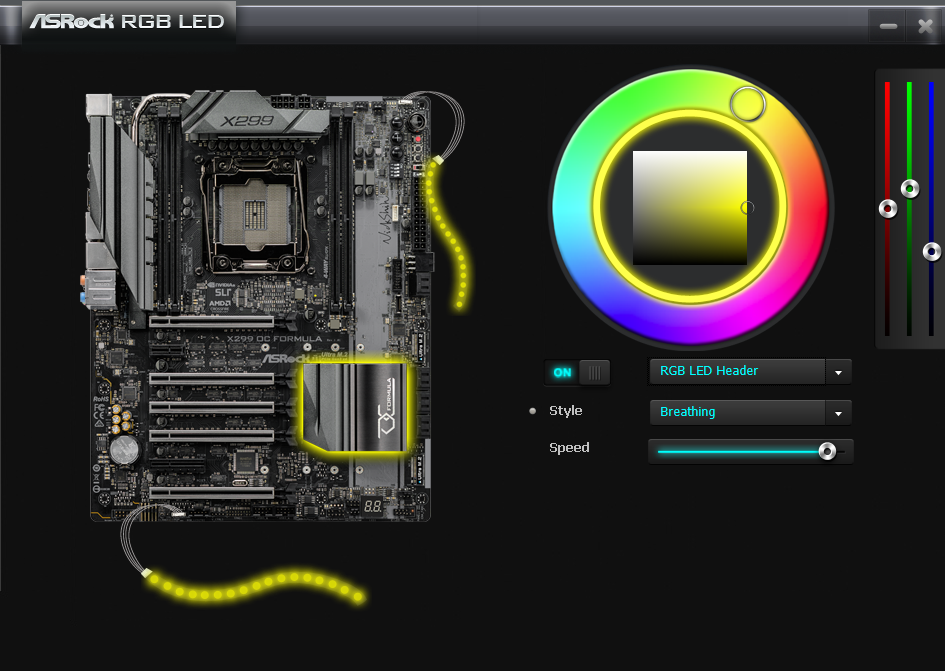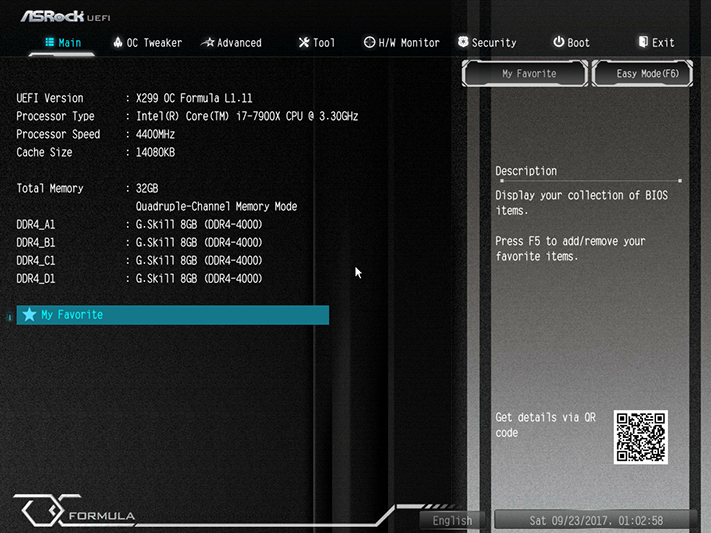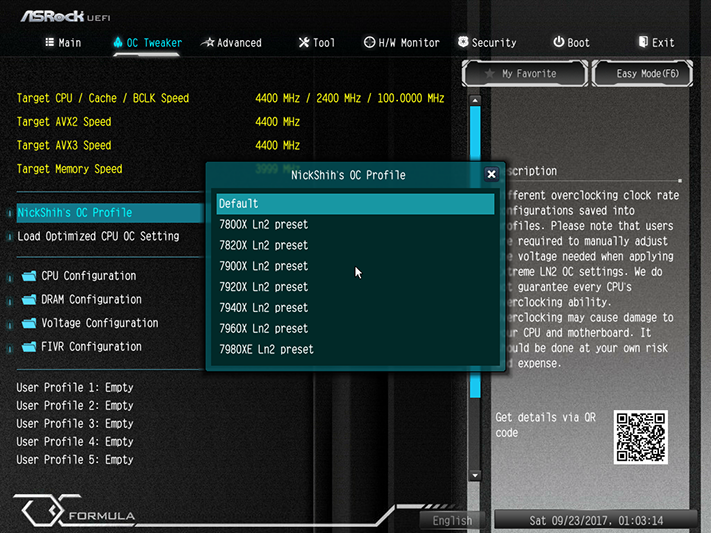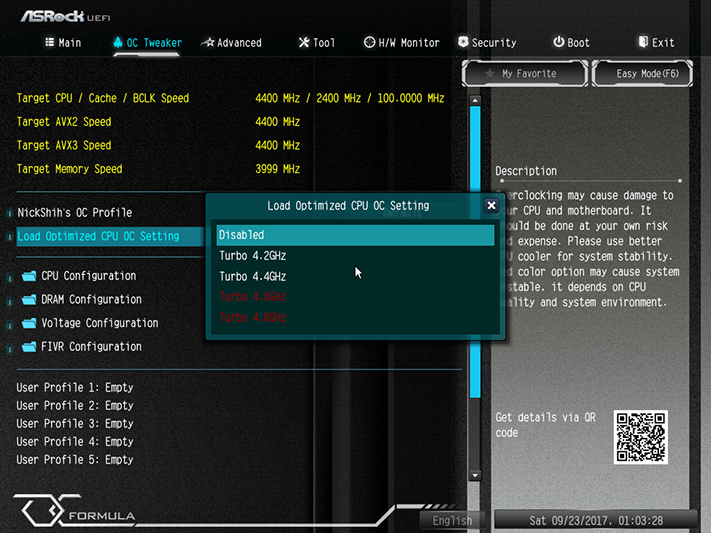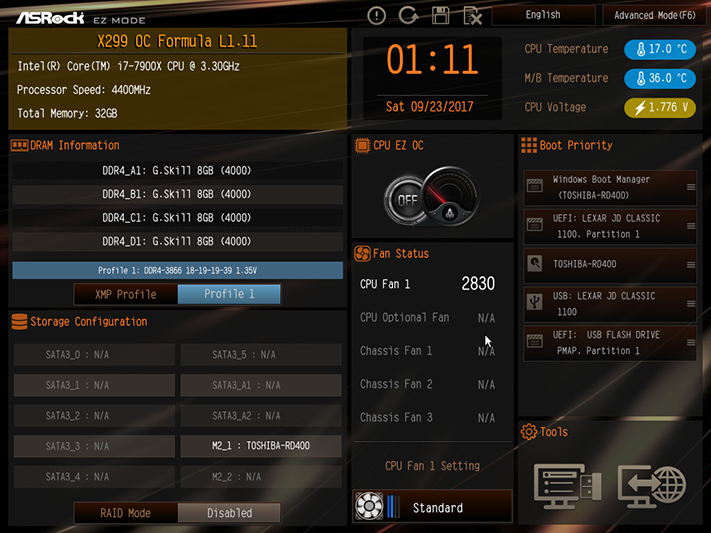ASRock X299 OC Formula Review
Why you can trust Tom's Hardware
Software & Firmware
There haven’t been any major changes to ASRock’s software suite since our Gaming i9 review, although the X299 OC Fomula doesn’t include the Gaming i9’s Creative audio software. A minor update has added firmware compatibility to ASRock’s RGB LED software application. Users can set the heat sink light to several colors, including rainbow cycles, and patterns that include breathing and strobing. The two RGB outputs can be set either synchronously or asynchronously depending on the user’s taste.
Formula Drive replaces F-Stream and A-Tuning applications of ASRock’s other motherboard series, although these are essentially different names for the same application. The application was not able to access firmware-based overclocking profiles, but its manual tuning worked as expected. Maximum settings are shown based on the limits of firmware.
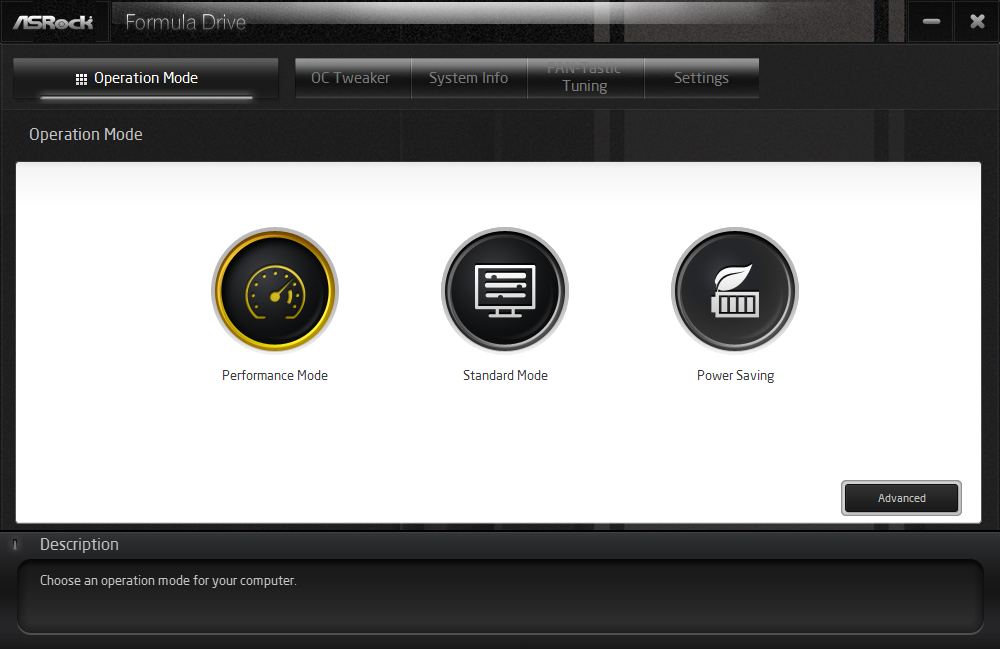
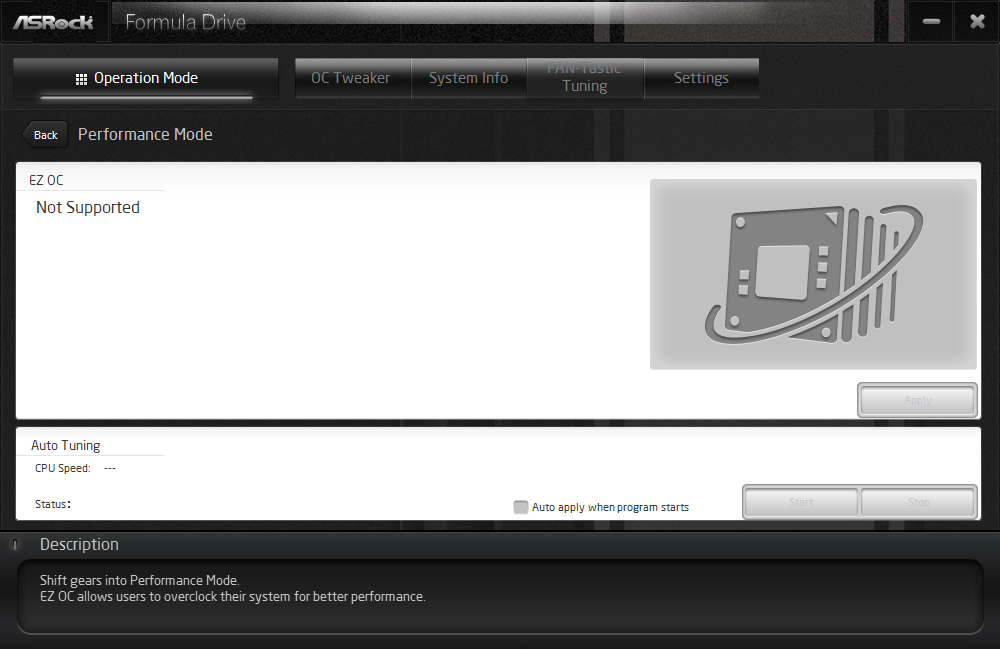
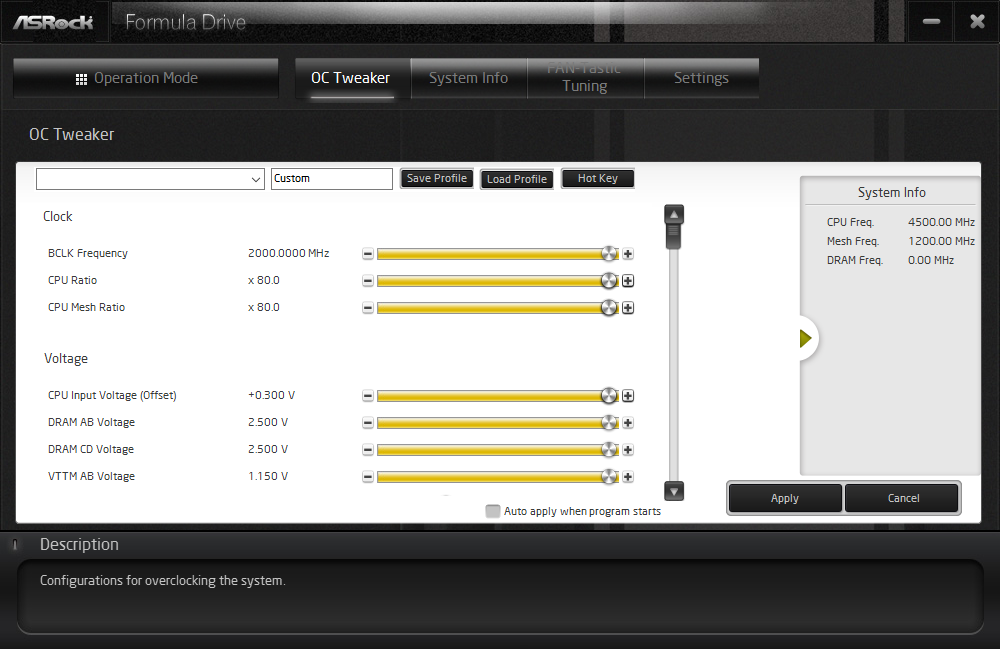
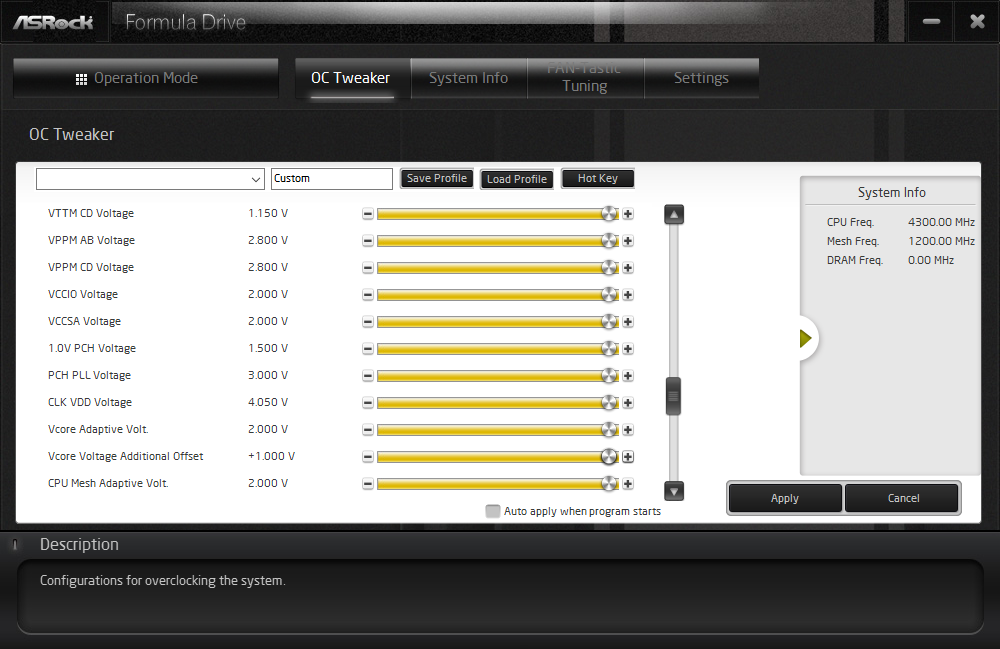
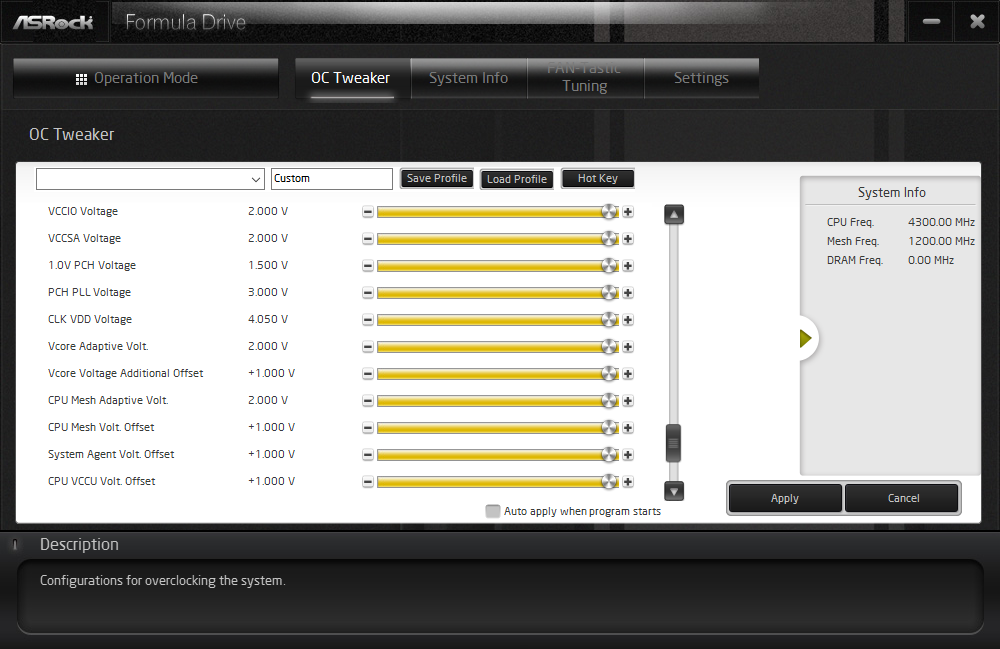
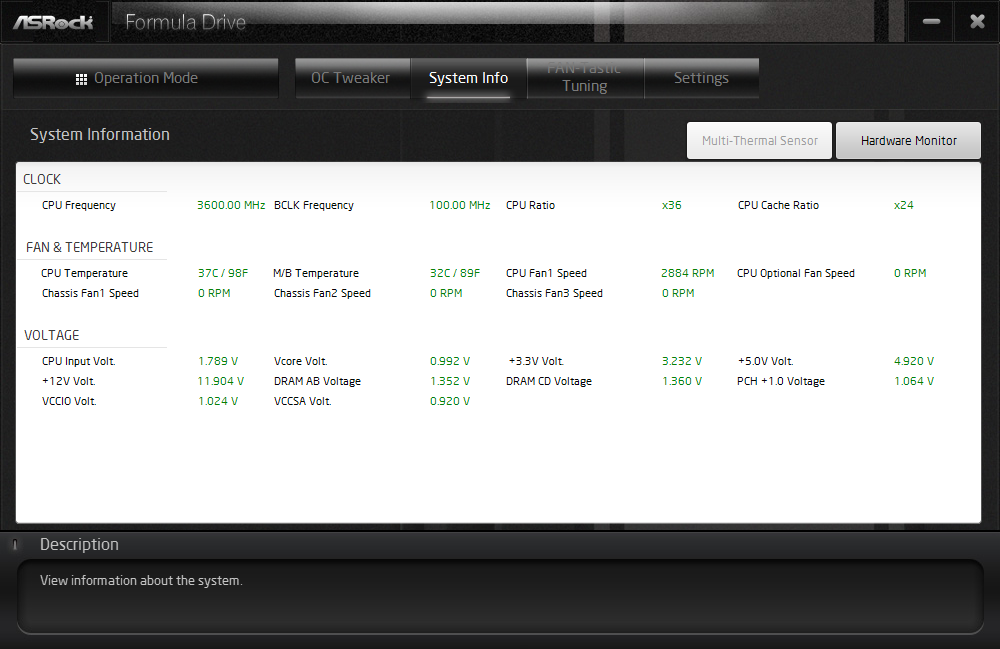
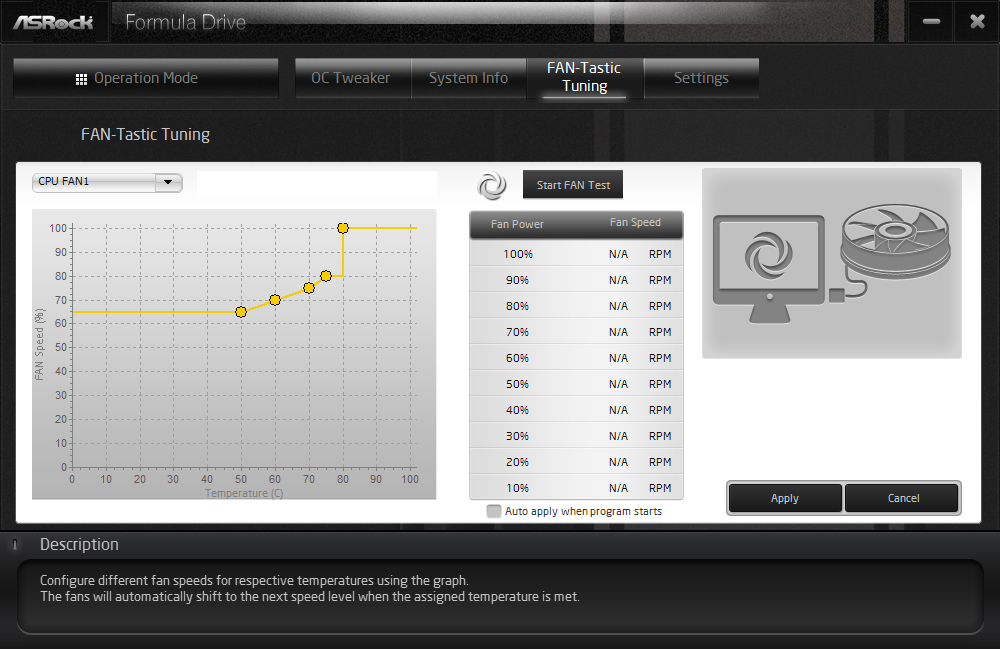
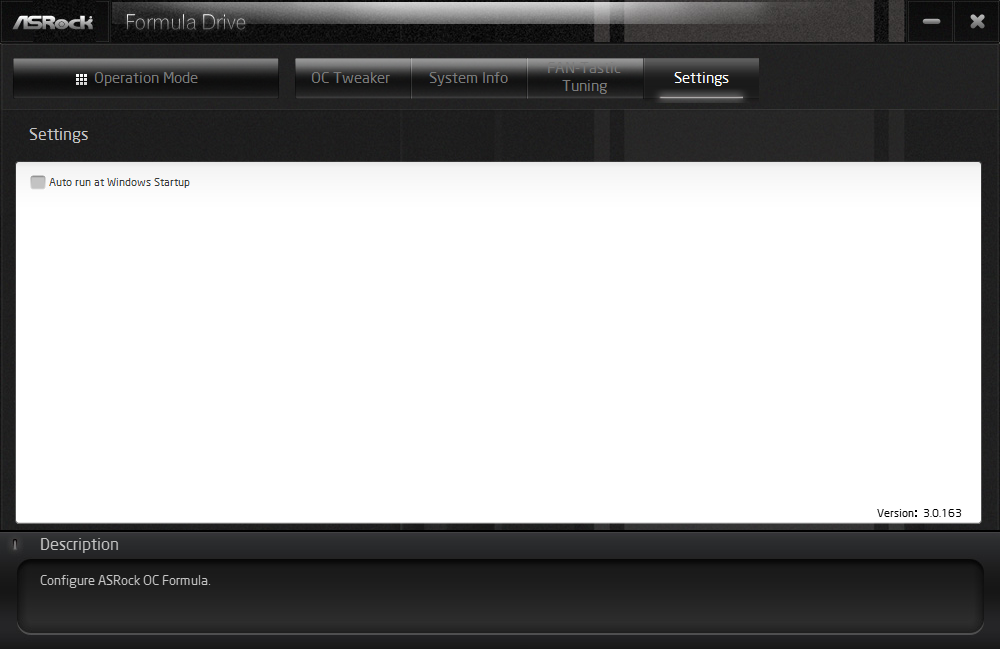
Firmware opens by default to the advanced UEFI interface, where the “Main” page has a section that allows users to store favorite settings.
Moving over to the OC Tweaker menu, we find Nick Shih’s LN2 profiles, ASRock’s regular “Optimized CPU OC” settings, and several submenus to control overclocks.
Every Nick Shih OC is based on a 50x CPU ratio at 1.45V CPU core, with other voltage levels varying with CPU model. For example, the 7800X through 7900X configurations use a 2.3V CPU input, while the 7920X through 7980EX use 2.45V.
“Optimized” overclocks are far more limiting, with the 4.2 GHz setting having negative core multiplier offsets of 2x for AVX2 and 3x for AVX3 mode, and the 4.8 GHz setting offsetting the core multiplier by 8x and 15x, respectively. We like to test the core at a true maximum load, and found that the AVX setting of “Auto” gave us no AVX offset whatsoever.
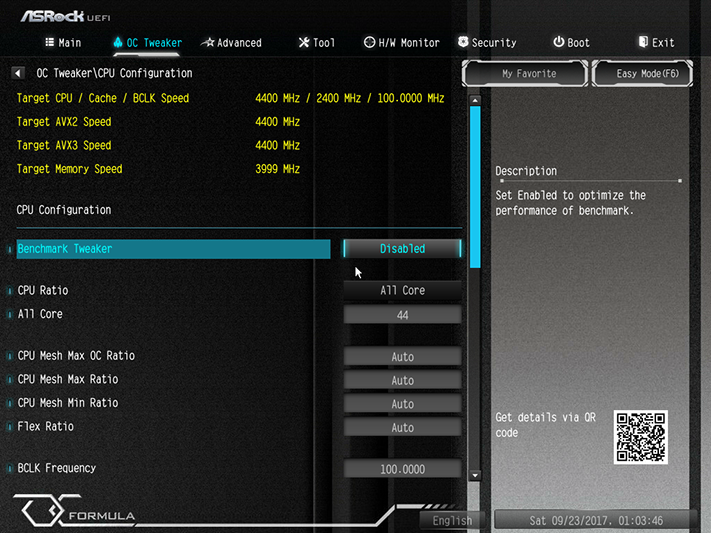
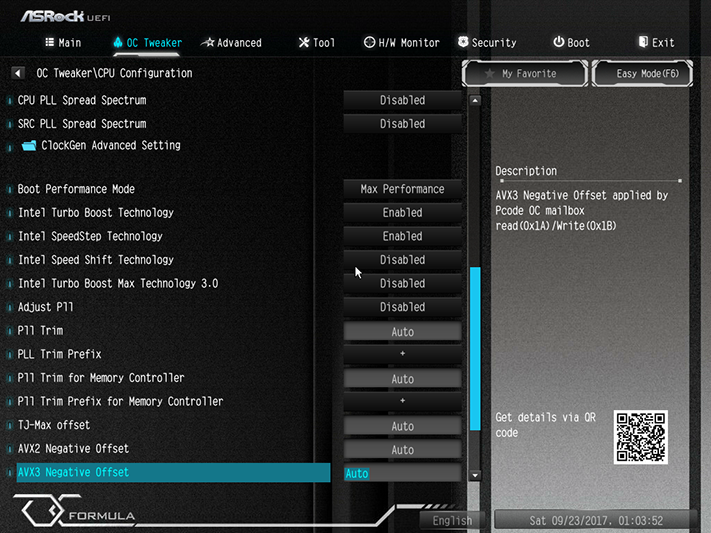
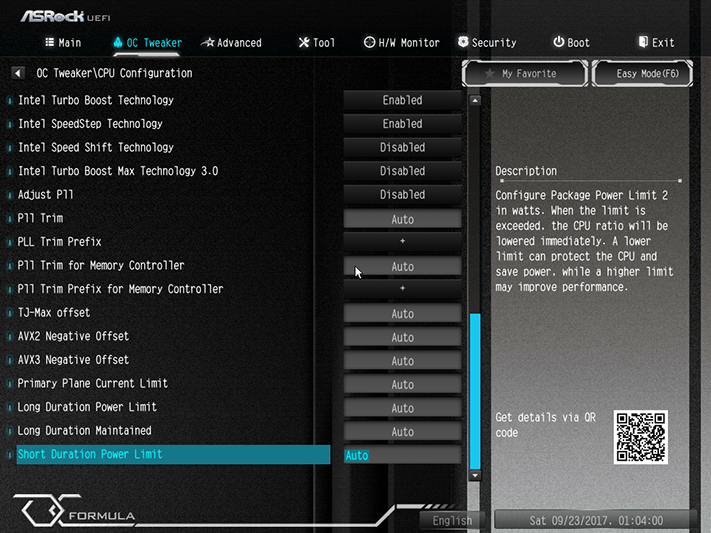
Using the same heat-determined 1.15V CPU core as we’ve used on other boards, we reached the same 4.40 GHz overclock at 10-core, 20-thread, Prime95 AVX load. Additional setting changes were not required, as the OC Formula’s default power and thermal limits fully supported this processor at those settings.
Get Tom's Hardware's best news and in-depth reviews, straight to your inbox.
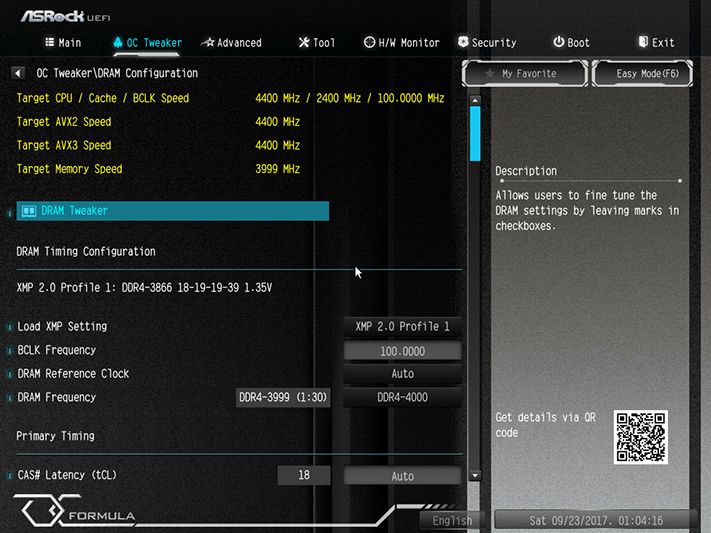
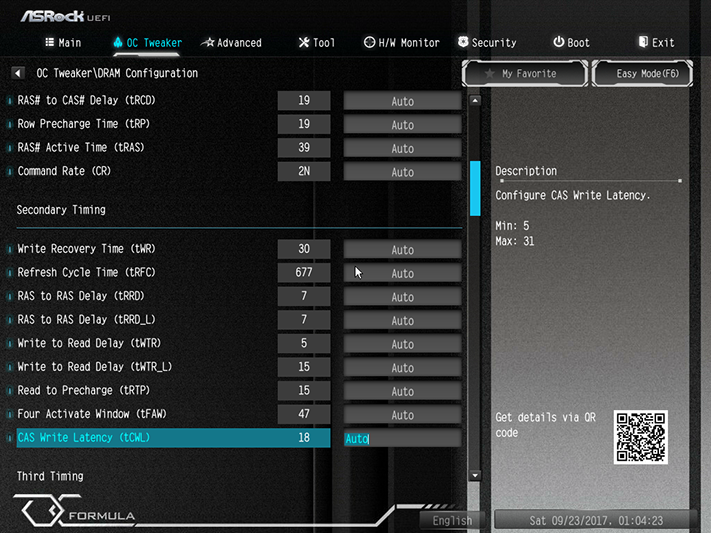
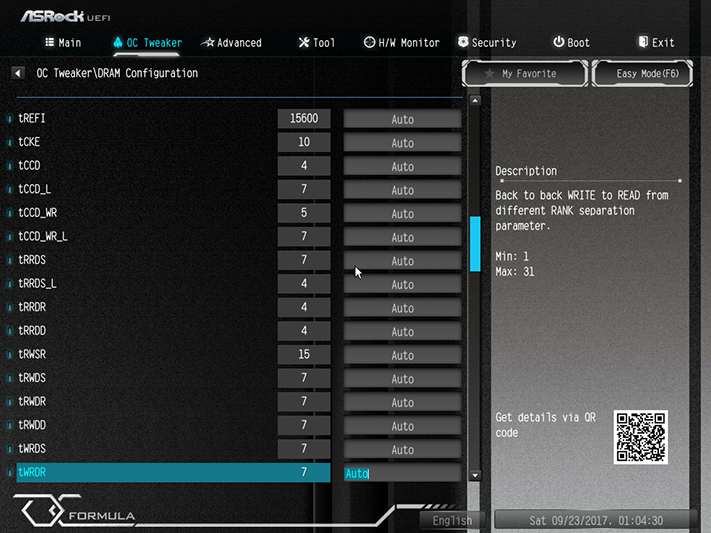
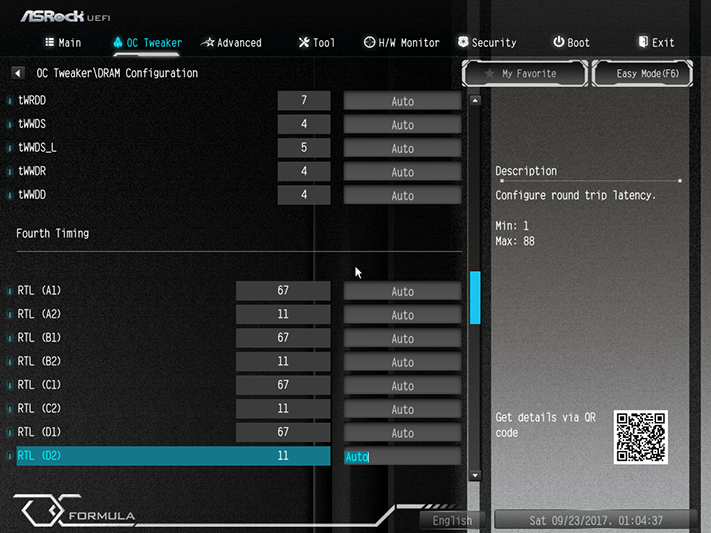
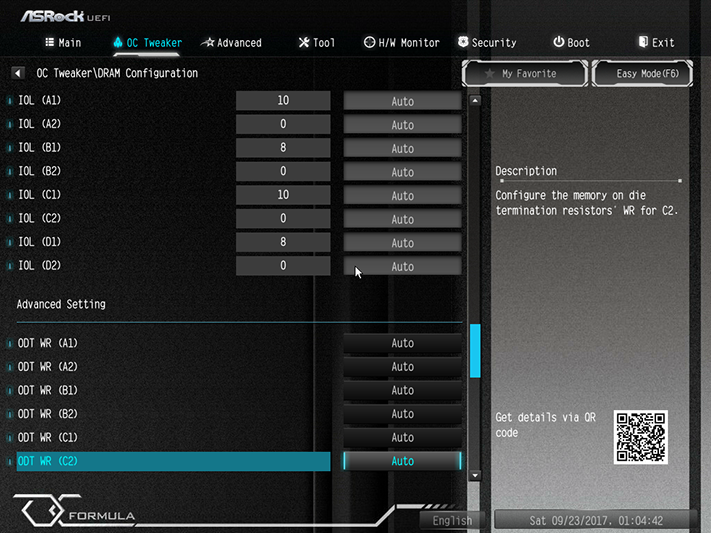
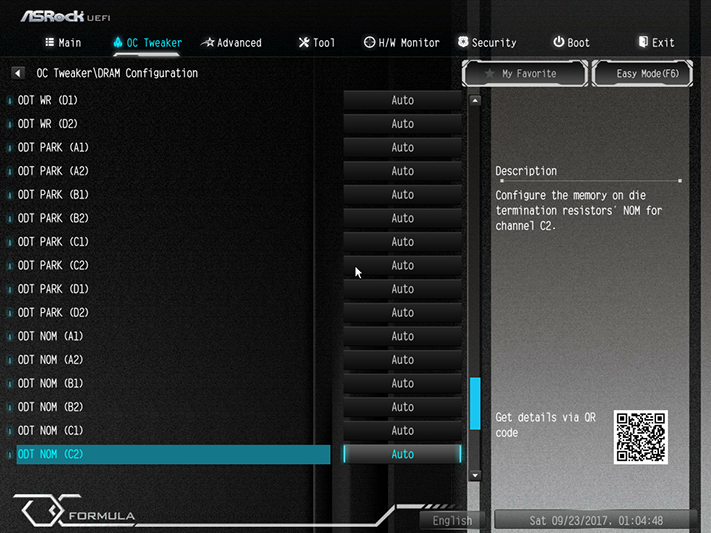
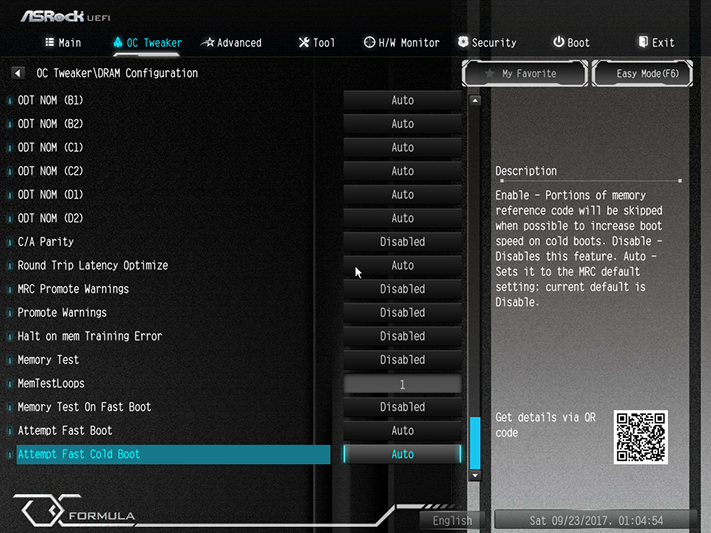
The X299 OC Formula reached a super-high DDR4-4122 overclock at full four-DIMM stability, proving the usefulness of its single-DIMM-per-channel slot layout. Users who want to tweak their memory beyond basic SPD or XMP timings will find the full range of settings farther down the DRAM Configuration submenu.
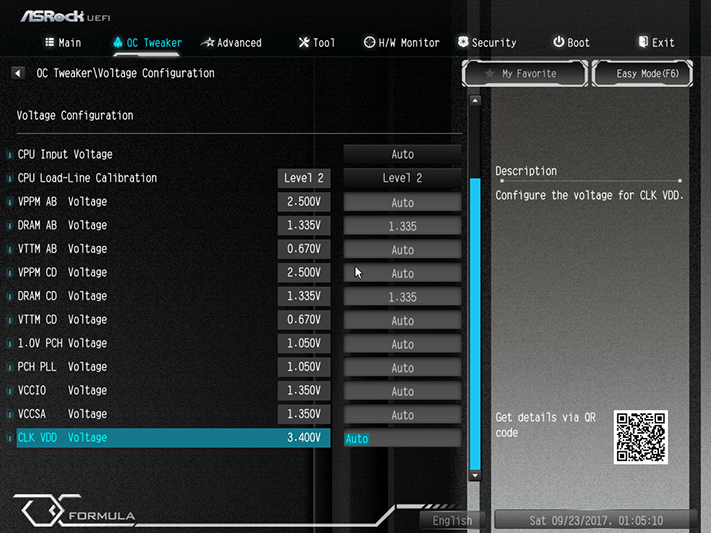
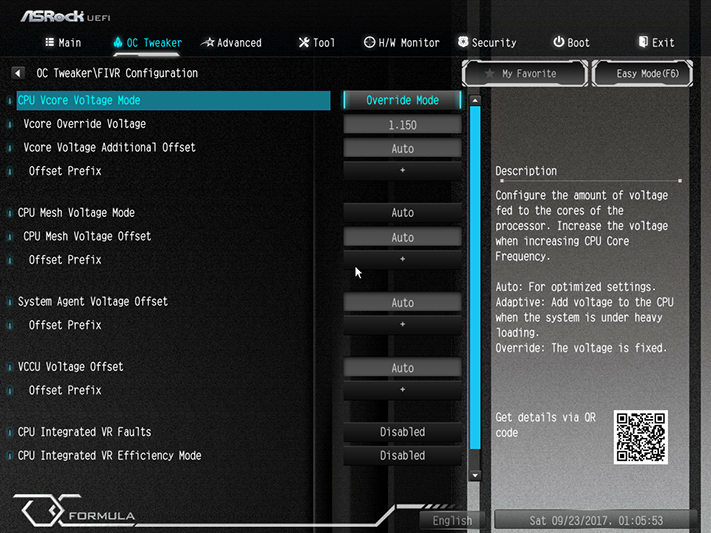

Merely changing the CPU ratio mode from “Auto” to “Manual” causes the X299 OC Formula to change its CPU Input voltage from “Auto” to “2.10V Fixed.” Since several of the “Optimized” settings were based on a 1.90V fixed input, I simply changed this value back to “Auto.” The “Level 2” load-line calibration produced the expected stability and thermal values we’ve previously seen when overclocking this CPU, and the 1.35V DIMM setting produced a measured 1.353V at the DIMM slots.
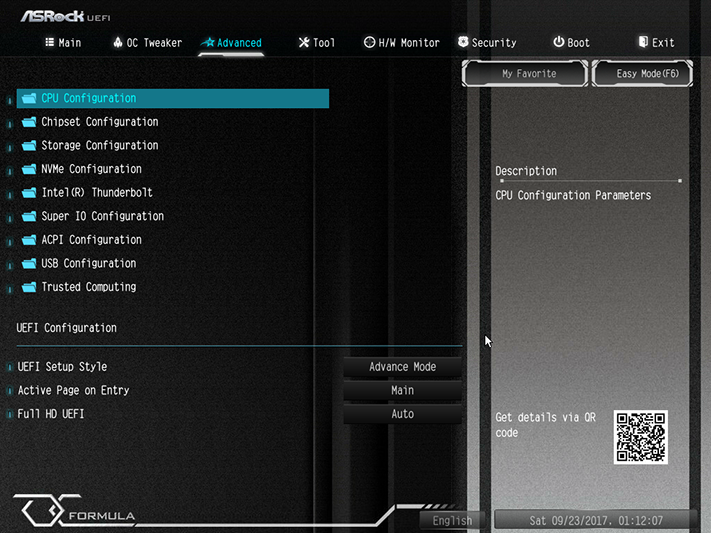
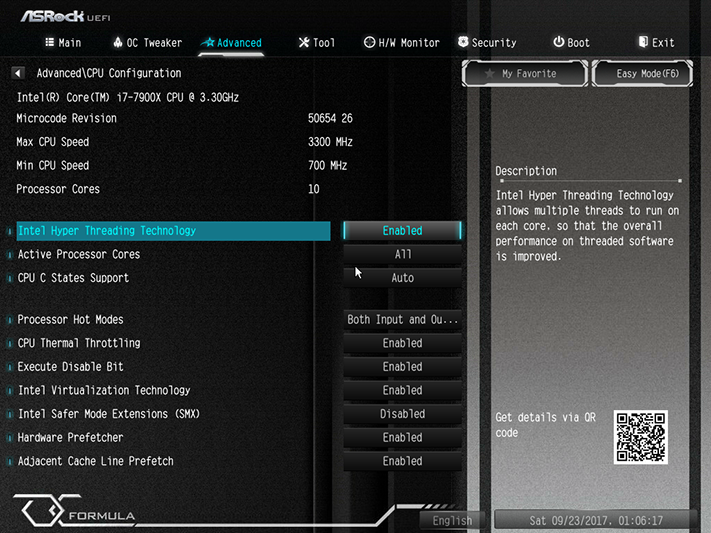
The “Advanced” menu of UEFI’s “Advanced” mode includes a setting (near the bottom) to change the UEFI boot interface back to “Easy” mode. One can also get into “Easy” mode from “Advanced” mode by pressing the keyboard’s F6 function key.
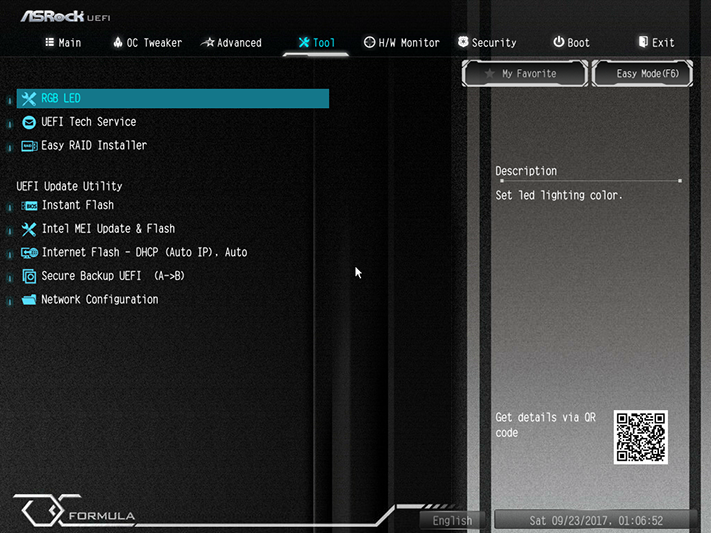
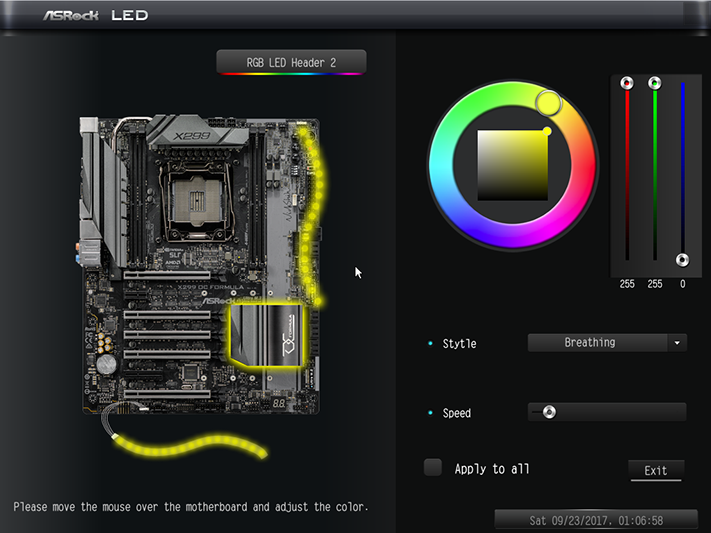
The “Tools” menu of UEFI contains everything mentioned in our Gaming i9 review, including an RGB menu identical to that of ASRock’s software application. The software application operates by changing the value in firmware.
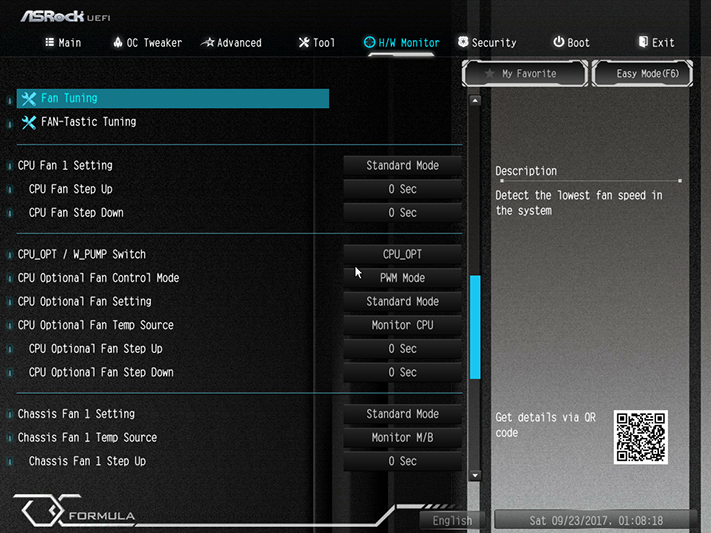
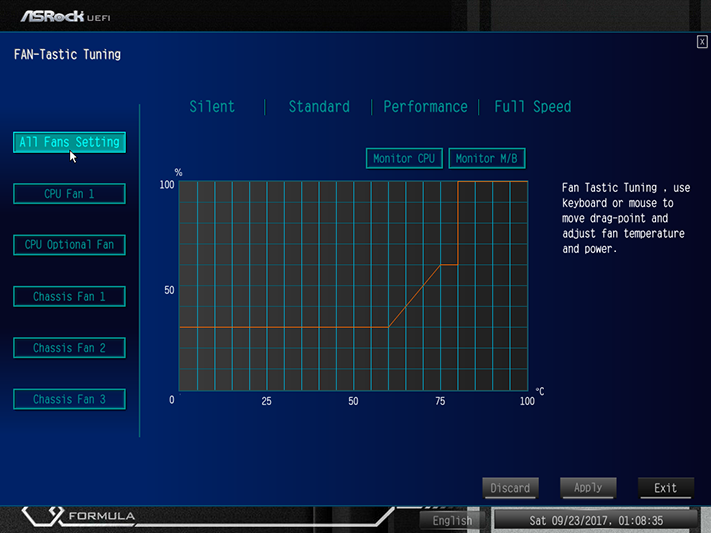
Only two of the X299 OC Formula’s headers can be switched from PWM to voltage-based fan control, and those same two headers are tagged for use with pumps up to 1.5A. The other headers have a 1.0A limit. You can set compatible fans using various programed profiles within the FAN-Tastic Tuning submenu.
Although the X299 OC Formula can be set to open its “Easy Mode” interface by default, that setting is found within “Advanced Mode.”
MORE: Best Motherboards
MORE: How To Choose A Motherboard
MORE: All Motherboard Content
-
slicedtoad Hmm. I think this board (and all of the x299 boards that achieve 4.4ghz) needs a better cooling solution to really test it. Either LN2 (which would likely be a nightmare to use as an objective test) or maybe delidded with a custom water loop. Delidding is fairly effective on x299 (replacing the TIM with something decent).*Reply
Then again, this article serves as a good example of the woes of overclocking a 10 core cpu. The motherboard isn't going to change the results much for most users because heat is usually the first problem.
*Why Intel decided to skimp on TIM with their $1000 CPUs, I have no idea. But I really don't think penny pinching is a suitable explanation. -
ElMojoMikeo It would appear that we have indeed hit a massive impasse on cooling. I am currently running older 39x0X processors on X79. I have spent a lot of time in the past tweaking them to stay inside their thermal limits. I am now looking to start upgrading them. The first thing I have been looking at is cooling. From bitter experience. I know that these new SkyLake X processors will be hard to live with on a daily basis without adequate cooling.Reply
Delidding six $1000+ processors. For those that don't know it requires special tools and nerves of steel. Once you have popped the IHS off, all warranties are void. So it's not really an option.
Open Challenge:
So the question now is. Is there a cooling system available anywhere at any cost that can keep a Skylake X processor from throttling under Prime95 on all cores? Without voiding any warranty.
I can't do that with the processors that I have now. So what hope has a Skylake X with more cores, cache and power consumption. -
krizdeb 7700k compatible ?Reply
https://img.purch.com/rc/400x300/aHR0cHM6Ly9pbWcucHVyY2guY29tL3IvNjAweDQ1MC9hSFIwY0RvdkwyMWxaR2xoTG1KbGMzUnZabTFwWTNKdkxtTnZiUzlKTDAwdk56RXpORGN3TDI5eWFXZHBibUZzTDJsdFlXZGxNREU1TG5CdVp3PT0= -
Crashman Reply
Nope, recycled chart with missing title update. I thought I'd caught all of those :)20261602 said:7700k compatible ?
https://img.purch.com/rc/400x300/aHR0cHM6Ly9pbWcucHVyY2guY29tL3IvNjAweDQ1MC9hSFIwY0RvdkwyMWxaR2xoTG1KbGMzUnZabTFwWTNKdkxtTnZiUzlKTDAwdk56RXpORGN3TDI5eWFXZHBibUZzTDJsdFlXZGxNREU1TG5CdVp3PT0=
-
ohenryy I keep wondering why we dont see the oc formula on the am4, I guess they really just want crazy overclocks and know AMD cannot really go as high as intel?Reply
